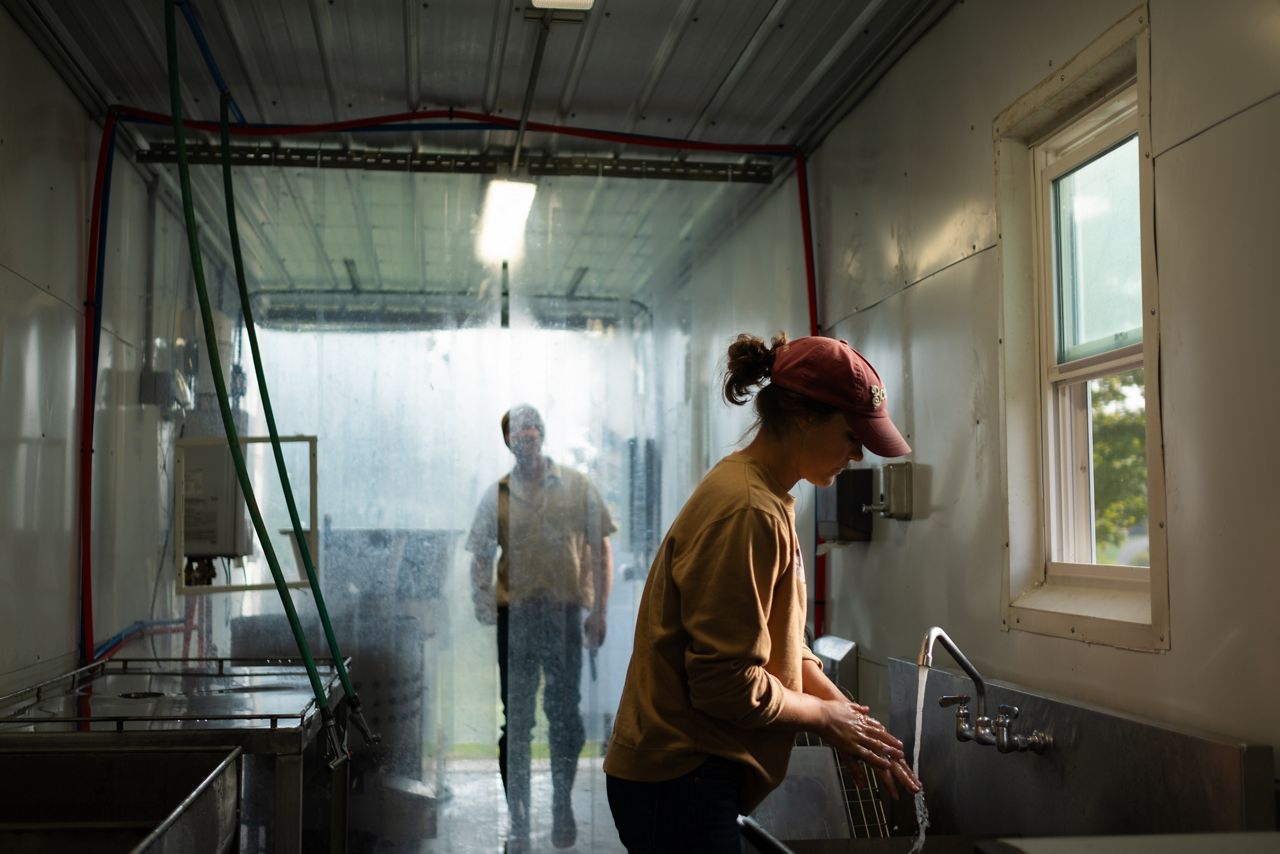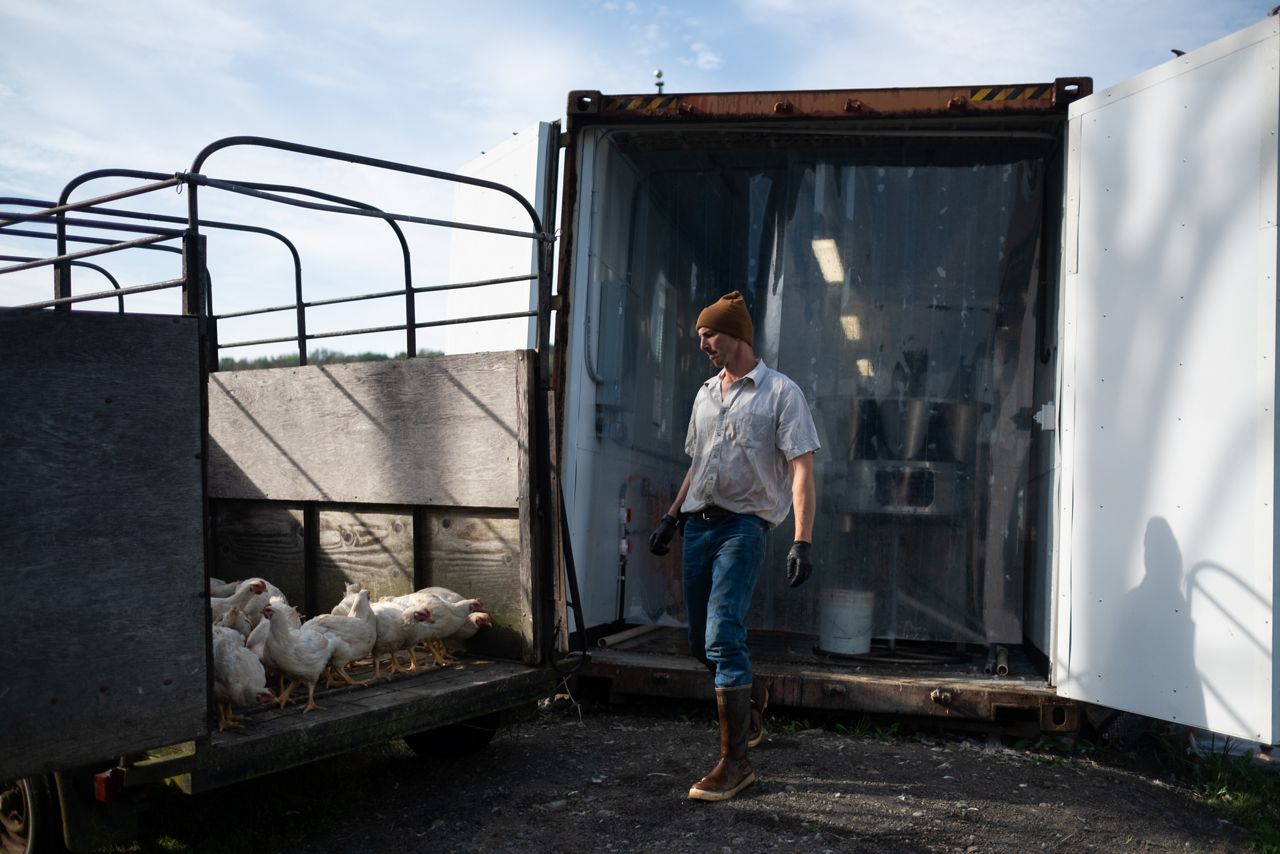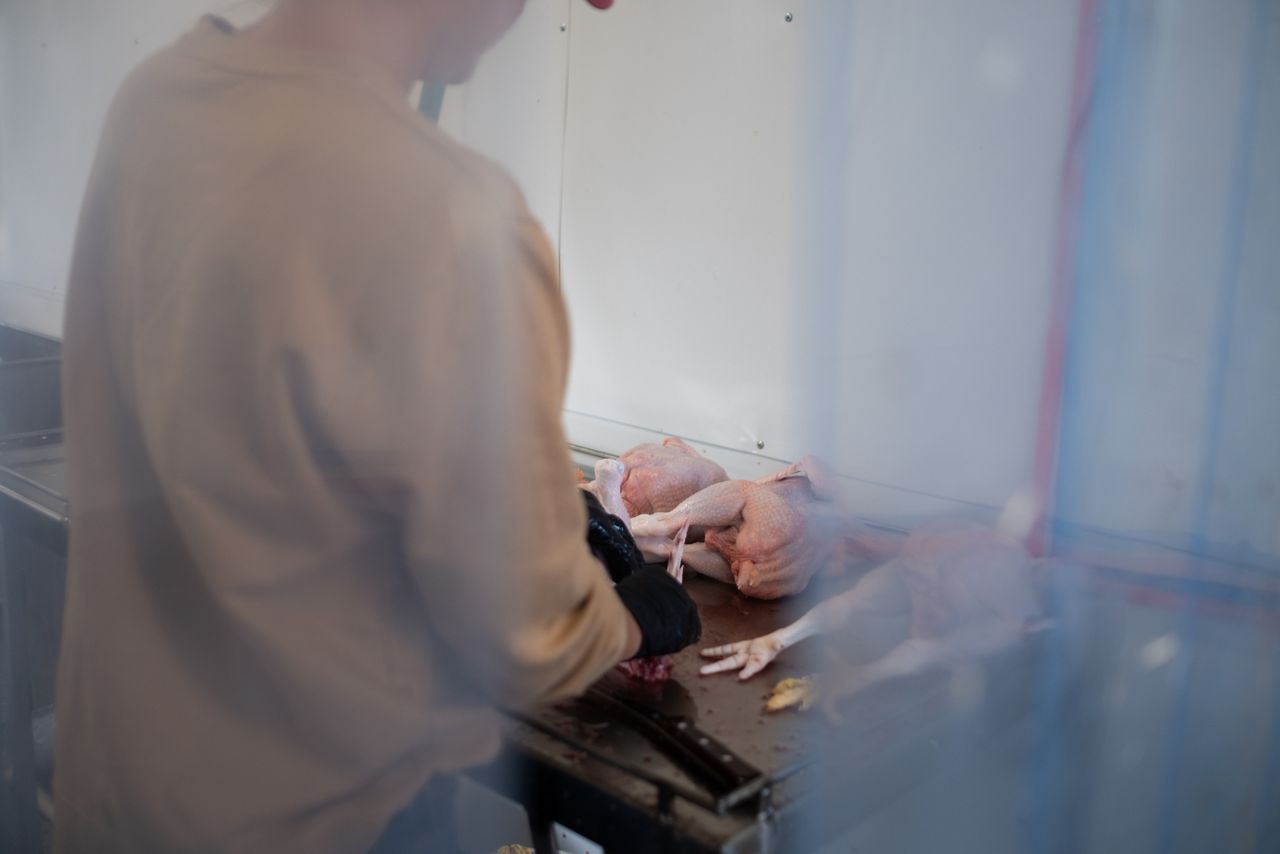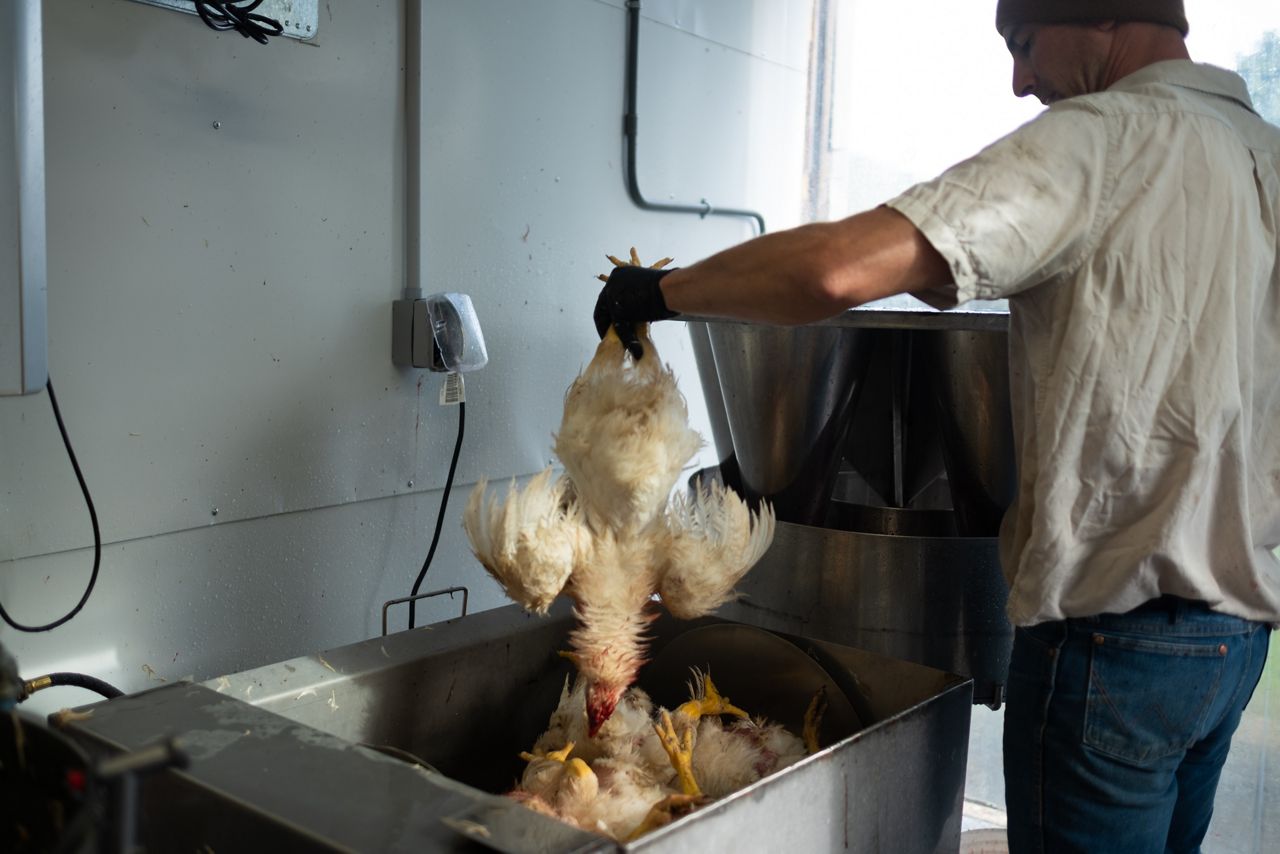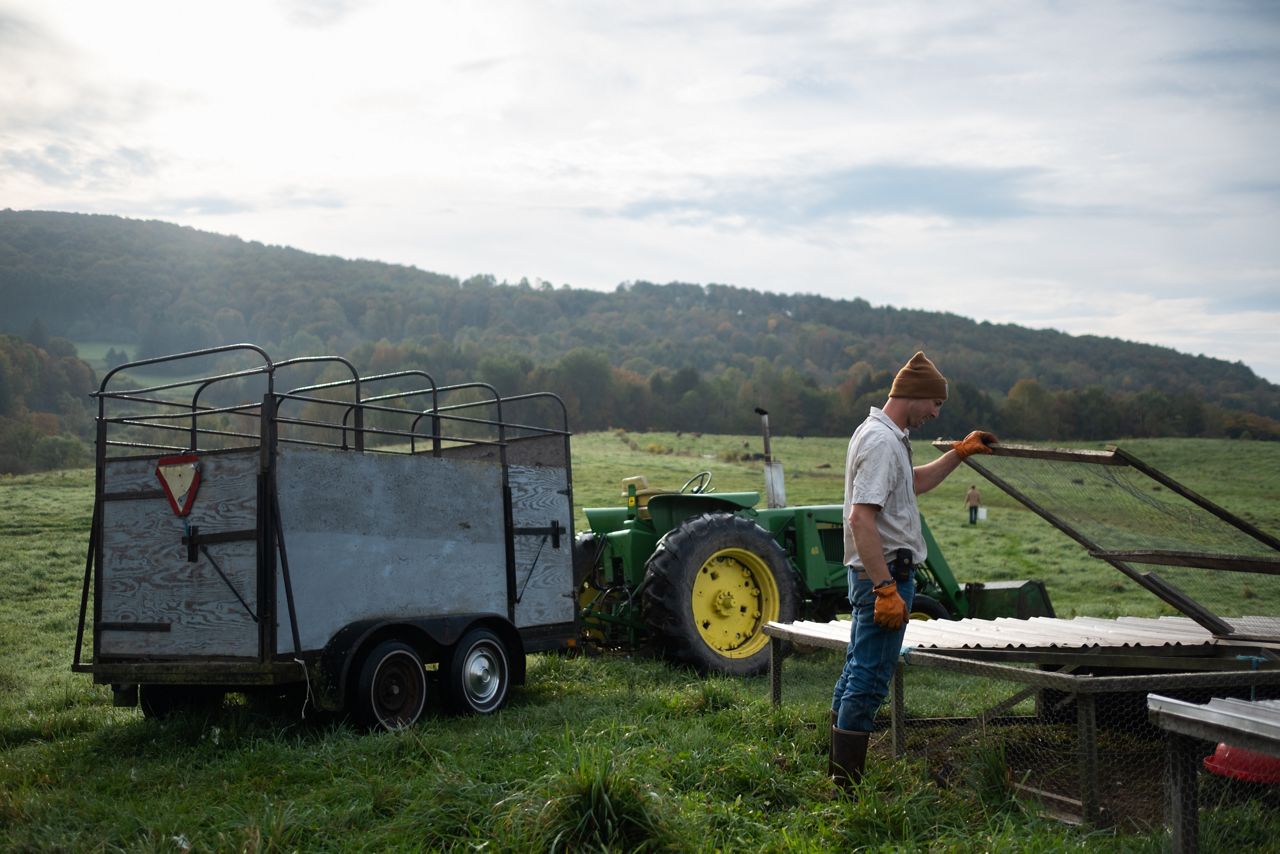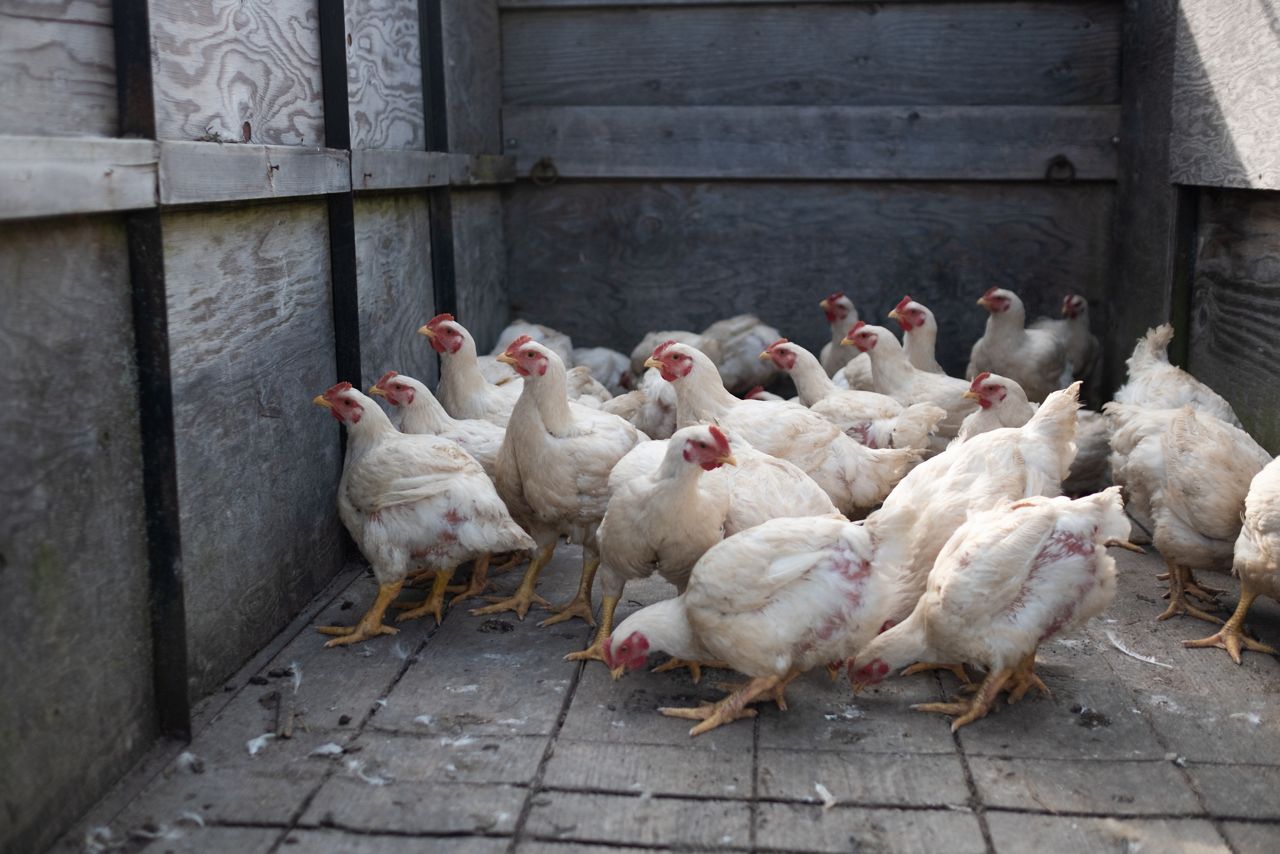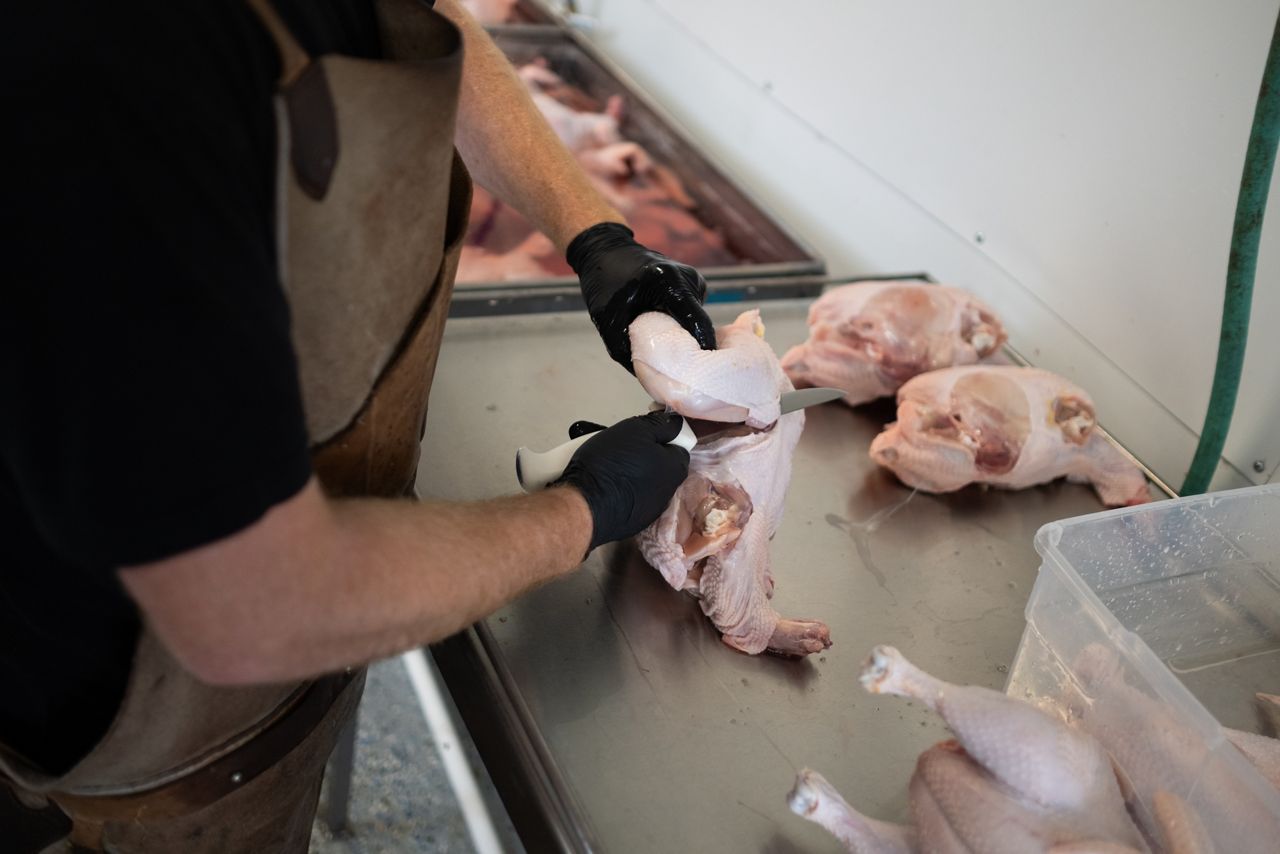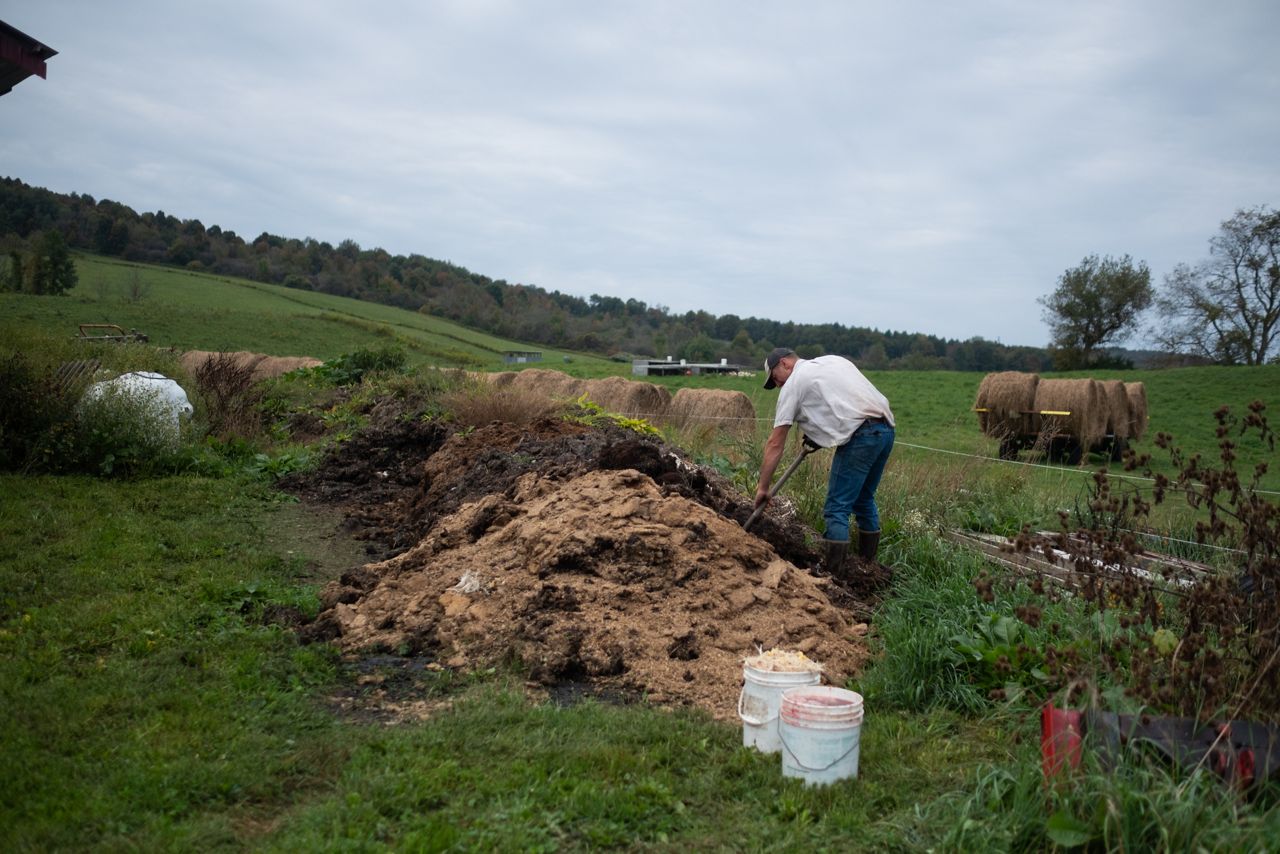
New York is not known for poultry production compared to states in the Midwest, but one Cortland County farm is upping its production to fill a niche at local markets.
Through a $22,000 grant from the county and a new designation from the state Department of Agriculture and Markets, Hillside Farms in Truxton is now able to process 20,000 birds – 20 times what they could do before.
“The grant was for small businesses that were already up and running, but it allowed us to buy equipment,” said Alexa Newton, who owns the farm with her husband, Jacob Newton.
Hillside Farms also raises beef, pork and turkey.
The license allows them to sell directly to restaurants and grocers since their facility must meet more stringent inspection regulations.
“When we first started raising a large number, we looked into transporting our birds somewhere to have them processed because we didn’t know if we could handle it and there wasn’t really any place local,” Alexa Newton said.
The facility added another revenue stream to the farm by handling the processing for poultry from other nearby farms.
“Now we’re able to do other people’s poultry, and so we’ve already had some families reach out and we processed their ducks recently, which was kind of cool,” Alexa Newton said.
They will process about 2,000 chickens and turkeys this year. Their birds are pasture-raised and move throughout their property in shelters. New York is not conducive to free-range chickens because of predators, but the shelters provide the same concept without threats.
“They can graze, get some bugs and insects that birds naturally do and then they’re getting that fresh air, sunlight and they’re not confined to a large chicken house,” Jacob Newton said.
Rich Strub, owner of Eden in Syracuse, has purchased both beef and chicken from the Newtons for the past few years.
“I think the chickens we get from him are really great. In the past, I’ve gotten them from bigger suppliers and the meat will be tough or chewy sometimes, especially if they’re bigger birds,” Strub said.
The first step he takes in his restaurant is brining the whole chicken.
“What that does is the salt in the brine actually enlarges the water molecules in the chicken muscles, and makes for a moister bird,” Strub said.
At Eden, they break down the bird into breasts, legs and thighs, then use the carcass to make stock. Strub purchases steaks from the Newtons as well, which he dry-ages and prepares in their wood-fired oven.
New York has 131 5A slaughterhouses, over 50 of them are down state, according to data from the New York Department of Agriculture and Markets. The nearest facility to Hillside Farms is in Nichols. By not having to transport their birds, it keeps the price under control.
“That’s about an hour and 15 minutes from here, which would put the [price of] the birds out of reach,” Jacob Newton said.
The 5A slaughterhouse designation from New York state allows them to butcher their birds into different cuts to be sold as well.
The Newtons said they value localizing the whole process to their farm and taking part in each step from the pasture to the table.
“The more equity we have in it, the more responsibility we put in ourselves to give them a good life, and this processing plant is a huge amount of equity in the whole process of raising the animal and getting it to the consumer,” Jacob Newton said.
Source: Emily Kenny, Spectrum News 1


